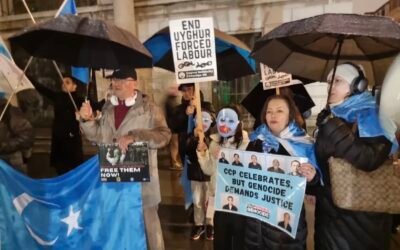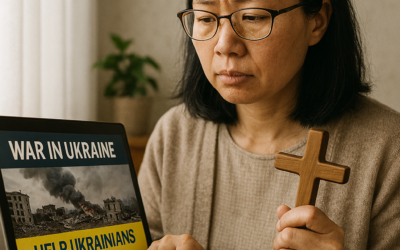“If you persecute non-official religions, nobody can make donations to them, and donors’ relatives will not protest by assassinating people”.
by Massimo Introvigne

Both domestic Chinese media and the international CCP propaganda mouthpiece Global Times have launched a campaign trying to exploit the assassination of Japanese former Prime Minister Abe Shinzo for the CCP’s own disinformation purposes.
As discussed in Bitter Winter, the assassin has a mother who is a member of the larger branch of the Unification Church founded by Korean preacher Moon Sun-Myung, and reportedly made large donations to it. He learned that Abe had participated (via video) to events of the Universal Peace Federation, which is connected to the Unification Church, and decided to assassinate him.
As also reported in Bitter Winter, the assassin’s mother’s donations occurred several years ago. It is a likely hypothesis than, rather than by these old donations, the assassin’s feeble mind was excited by recent media campaigns against “fraudulent” donations to the Unification Church, fueled by a group of Japanese lawyers. They have even formed an anti-cult lawyers’ association, and believe they may make significant money by persuading donors who have left the Unification Church or relatives of those who are still members to file lawsuits and try to recover what they had donated.
Nobody is directly responsible for how the weak mind of the assassin worked. But if we look for possible or hypothetical indirect responsibilities, the anti-cult lawyers and the media that support them are more credible candidates than the Unification Church.
Enter the Chinese propaganda organs. They are happy to remind their readers that in China the Unification Church is included in the list of the xie jiao and is prohibited (although it has been active clandestinely, or so they claim).
They use the assassination of Abe to argue for the superiority of the Chinese system of strictly controlling religion and prohibiting groups the CCP labels “cults” or xie jiao over the Japanese and Western system of religious liberty. Their argument is both paradoxical and simple. In China, making donations to illegal religions is strictly prohibited (truth be told, even donating to authorized religions is not that easy). In China, the mother of the assassin would never have been allowed to donate to the Unification Church. As a consequence, her son would never have had a grudge about the donation, and would never have killed a politician in protest.
Obviously, the argument does not make sense. The CCP could as well argue that the way of preventing confrontations at political demonstrations, which sometimes result in casualties, is forbidding political demonstrations altogether, as it happens in China. The CCP could also suggest that in China the police has found the perfect solution for avoiding the assassination of local democratic politicians. Since there are no democratic politicians, they cannot be assassinated. It is called throwing the baby out with the bathwater.
This criticism is not enough. The Chinese propaganda argument can and should be turned on its head. First, Chinese repression does not prevent religion-related crimes. As the China Anti-Xie-Jiao Association admits, police repression may reduce the activities of some larger religious movements, but cannot avoid the presence of a plethora of smaller movements, which are almost impossible to control even for the all-seeing eye of Chinese Public Security.
A case in point is the murder of a woman in a McDonald’s diner in Zhaoyuan, Shandong, in 2014. While it was originally falsely attributed to a large movement, The Church of Almighty God (CAG), it is now clear that it was perpetrated by a smaller group not connected with the CAG—precisely one of the small, unknown movements not even the Chinese police is able to identify and control. Lesser “cultic” crimes are denounced by Chinese media every week, which is evidence that the repression does not entirely work.
On the contrary. Scholars know that it is precisely by repressing the largest and comparatively law-abiding new religious movements that the authorities fuel the proliferation of smaller, uncontrollable groups, some of which may be more inclined to commit crimes, perhaps as a result of well-known amplification of deviance sociological processes and because they are exasperated by the repression.
Second, China has fueled internationally the stereotyping and maligning of “cults: and xie jiao, by supporting in all possible ways the activities of anti-cult organizations abroad and their campaigns. If the hypothesis that these campaigns of hate turned the head of Abe’s assassin would prove to be correct, this would be further evidence that the “Chinese model,” rather than preventing hate crimes such as Abe’s assassination, in fact makes them easier. Remember, Abe’s killer wanted to “punish,” not to “defend” a “cult.”

Massimo Introvigne (born June 14, 1955 in Rome) is an Italian sociologist of religions. He is the founder and managing director of the Center for Studies on New Religions (CESNUR), an international network of scholars who study new religious movements. Introvigne is the author of some 70 books and more than 100 articles in the field of sociology of religion. He was the main author of the Enciclopedia delle religioni in Italia (Encyclopedia of Religions in Italy). He is a member of the editorial board for the Interdisciplinary Journal of Research on Religion and of the executive board of University of California Press’ Nova Religio. From January 5 to December 31, 2011, he has served as the “Representative on combating racism, xenophobia and discrimination, with a special focus on discrimination against Christians and members of other religions” of the Organization for Security and Co-operation in Europe (OSCE). From 2012 to 2015 he served as chairperson of the Observatory of Religious Liberty, instituted by the Italian Ministry of Foreign Affairs in order to monitor problems of religious liberty on a worldwide scale.



